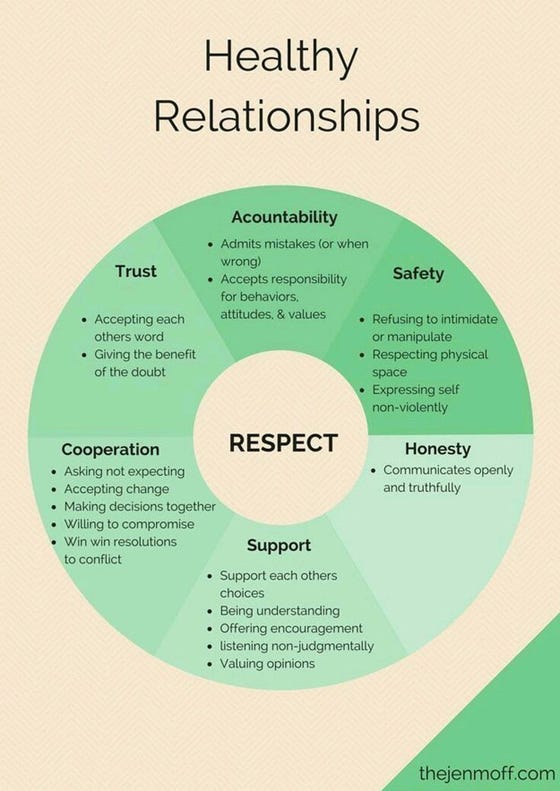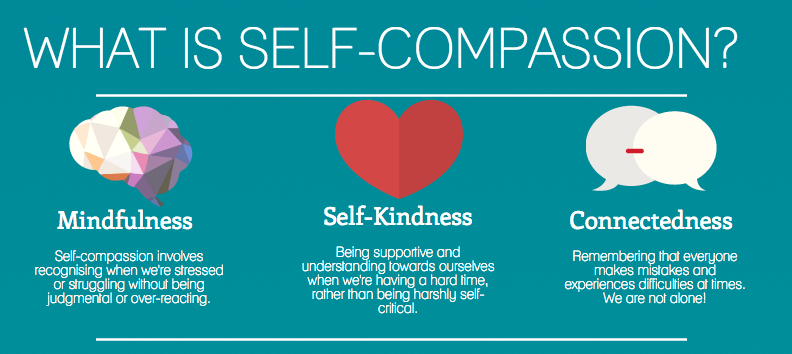Understanding Self-Love
Self-love is a crucial aspect of mental and emotional well-being. It involves valuing and treating oneself with kindness and care. By practicing self-love, individuals empower themselves to establish healthy boundaries and make better choices for their lives.
The importance of self-love has been widely promoted in literature, media, and mental health advocacy. For instance, Self-Love Day is a legislative initiative that aims to raise awareness about the significance of self-love. Podcasts like “I’m Proud of You Sis” also contribute to this cause by promoting empowerment, mentorship, and community building.
Embracing self-love leads to self-acceptance and appreciation, which in turn fosters self-confidence and positivity.

This mindset helps individuals overcome obstacles, cope with stress, and maintain positive relationships. Moreover, promoting self-love contributes to culture development and personal growth.
However, developing self-love takes time and effort. It requires ongoing self-reflection and commitment to change. The media and societal beauty standards often perpetuate negative self-image, making self-love even more vital. Movements such as body positivity and inclusivity emphasize accepting oneself and others regardless of physical appearance.
In conclusion, self-love is a continuous practice that positively impacts mental health, self-confidence, and relationships with others. By cultivating self-love through mindfulness, journaling, and therapy, individuals can overcome negative self-talk and create a more fulfilling life.
Practices for Cultivating Self-Love
Cultivating self-love is an essential practice for overall well-being. It involves nurturing a positive relationship with oneself through daily habits and activities. In this section, we will explore various practices that can help you foster self-love and improve your mental and emotional health.
Physical Health and Self-Care
Taking care of your physical health is crucial for self-love. Engage in regular exercise and mindfulness practices like yoga or meditation to promote self-acceptance. Prioritize sleep and maintain a balanced diet to keep your body healthy and energized. Good grooming habits, such as skincare and dressing well, can also boost your self-confidence. MindBodyGreen offers helpful self-care techniques for building confidence.
Positive Relationships and Boundaries
Surround yourself with positive relationships that uplift and support you. Set boundaries and say no to things that do not align with your personal values. This practice helps you cultivate self-love by respecting your own needs and desires.

Learn more about setting healthy boundaries from Psychology Today.
Embrace Your Interests and Passions
Pursue hobbies and interests that bring joy and fulfillment to your life. Engaging in creative activities can foster a greater sense of self-fulfillment and personal identity. This practice allows you to explore your passions and develop a deeper connection with yourself.
Self-Reflection and Challenging Negative Thoughts
Engage in self-reflection and dialogue to identify and challenge negative self-talk and beliefs. Journaling can be a powerful tool for self-discovery and growth, helping you recognize your strengths and areas for improvement. Mindful breathing exercises, spending time in nature, and maintaining a gratitude journal can also enhance positive thinking and reduce negative thoughts.
Seek Professional Support
If you struggle with self-love, consider seeking therapy or professional support. A mental health professional can help you overcome past traumas and negative self-beliefs, leading to improved self-esteem. Embracing diverse perspectives and cultures can also broaden your understanding of the world and promote self-acceptance and compassion for others.
Incorporating these practices into your daily routine can help you cultivate self-love and improve your overall well-being. Remember, self-love is a journey, and it takes time and effort to nurture a positive relationship with yourself.
Overcoming Negative Self-Talk
Negative self-talk can be a significant obstacle in the journey of self-love. It’s essential to recognize and challenge these thoughts to cultivate a healthy self-image. In this section, we will explore strategies to combat negative thoughts and beliefs about oneself.
Embrace Mindfulness
One effective way to overcome negative self-talk is through mindfulness exercises, such as meditation, body scanning, or breathing exercises. These practices help you become more aware of your thoughts and emotions, allowing you to identify and address the sources of stress and negativity. Headspace is a popular app that offers guided mindfulness exercises for beginners.
Challenge Negative Thought Patterns
Cognitive restructuring, visualization, and cognitive-behavioral therapy (CBT) are powerful techniques for challenging and changing negative thought patterns. Cognitive restructuring involves identifying cognitive distortions and replacing them with more balanced thoughts. Visualization helps you imagine positive outcomes, while CBT focuses on changing unhealthy thought patterns and behaviors. You can find online resources and professionals to guide you through these techniques.

Build a Support Network
Surrounding yourself with positive influences and a support network can provide validation and a sense of belonging. Engage in activities that promote social interaction, such as joining clubs or attending community events. Reach out to friends and family for encouragement and support.
Practice Self-Compassion
Focusing on your strengths and values can help combat negative thoughts and beliefs. Be kind to yourself and practice self-compassion. Recognize that everyone makes mistakes and that it’s essential to learn and grow from these experiences.
Take Care of Your Well-Being
Neglecting physical, mental, and emotional well-being can contribute to negative self-talk. Prioritize self-care by engaging in activities that promote relaxation, such as exercise, reading, or spending time in nature. Ensure you get enough sleep and maintain a balanced diet to support overall health.
Remember, change takes time and practice. Be patient with yourself as you work towards overcoming negative self-talk and cultivating self-love.
Setting Boundaries for Self-Love
Establishing healthy boundaries in relationships and work is crucial for self-love and respect. Recognizing and calling out toxic behavior patterns can help protect oneself, fostering healthier relationships and reducing stress and anxiety. Setting boundaries builds self-esteem and allows individuals to maintain their mental, emotional, and physical well-being.
Challenges in Setting Boundaries
Common challenges to setting boundaries include people-pleasing, not wanting to offend elders, and power dynamics in the workplace. Canadians, known for their polite and friendly demeanor, may find it particularly challenging to navigate situations where people overstep their boundaries. Self-reflection can help become more aware of situations that push your boundaries and how to address them effectively.
Boundaries in the Workplace
Maintaining healthy boundaries in the workplace is crucial to well-being and professional growth. Strategies for setting healthy boundaries at work can include setting limits on workload and work-life balance and advocating for oneself in terms of compensation and professional development opportunities. Healthy boundaries can help reduce stress, anxiety, and burnout in the workplace, as well as improve productivity and job satisfaction.
Boundaries in Personal Relationships
Healthy boundaries within relationships are often informed by a healthy boundary relationship with ourselves.

Green flags of healthy boundaries include respecting each other’s “no,” expressing needs and boundaries clearly, and prioritizing repair after ruptures in relationships. Setting and maintaining boundaries can be a challenging process that requires constant self-reflection and communication, but it is an important skill for personal and professional growth.
Self-Esteem and Emotional Well-Being
Self-esteem plays a crucial role in emotional well-being, relationships, achievement, and success. Strategies for cultivating healthy self-esteem include treating oneself with kindness, embracing self-care, replacing negative self-talk with compassionate thoughts, and seeking positive relationships and activities. The Six Pillars of Self-Esteem identified by self-esteem expert Nathaniel Branden are self-acceptance, self-responsibility, self-assertiveness, living consciously, personal integrity, and the practice of self-actualization. Learn more about Nathaniel Branden’s Six Pillars of Self-Esteem here.
In conclusion, learning to establish healthy boundaries can lead to greater self-esteem and overall well-being, as well as stronger, more fulfilling relationships and career satisfaction. Embrace the art of self-love by setting and maintaining healthy boundaries in all aspects of life.
The Role of Self-Compassion
Self-compassion is a crucial aspect of self-love, as it involves treating oneself with kindness, understanding, and forgiveness. It requires being non-judgmental towards oneself, especially during challenging times. Research has shown that self-compassion is more important for well-being than self-esteem, as it emphasizes treating oneself kindly rather than just evaluating oneself positively.
One way to cultivate self-compassion is by practicing mindfulness, which involves accepting and being present with one’s thoughts and emotions. This can help individuals recognize that suffering is a part of the human experience, allowing them to be more understanding and gentle with themselves. A study found that those who practice self-compassion experience less negative emotion and more optimism, energy, and feeling alive.
Another method to increase self-compassion is through expressive writing, which can help individuals process their emotions and gain insight into their experiences. This practice allows people to be more accepting of their thoughts and feelings, fostering emotional healing and coping with negative experiences.
Yoga is another powerful tool for promoting self-compassion. It helps individuals connect with their breath and body in a mindful and non-judgmental way, fostering a sense of deep personal trust and self-kindness.

The practice of yoga also encourages a sense of community, which is vital for mental health. You can explore local yoga studios or online classes, such as Yoga with Adriene, to begin your journey.
Health psychologist Kelly McGonigal emphasizes the importance of self-compassion, especially for those in high-stakes fields like medicine. She encourages clinicians to support their patients through stressful times and to find space for self-compassion themselves. By incorporating self-care practices, such as setting boundaries, prioritizing rest and relaxation, and seeking social support, individuals can boost their self-compassion and overall well-being.
It’s essential to remember that the practice of self-compassion can be challenging due to deep-seated shame and guilt. However, with time, patience, and consistent effort, anyone can learn to be more self-compassionate and reap the benefits in their overall well-being. Embracing self-compassion is a vital step in the journey of self-love, leading to a happier, healthier, and more fulfilling life.
